Over 30 years of anarchist writing from Ireland listed under hundreds of topics
Economy
Covid and Class Struggle in Ireland's Meat Plants
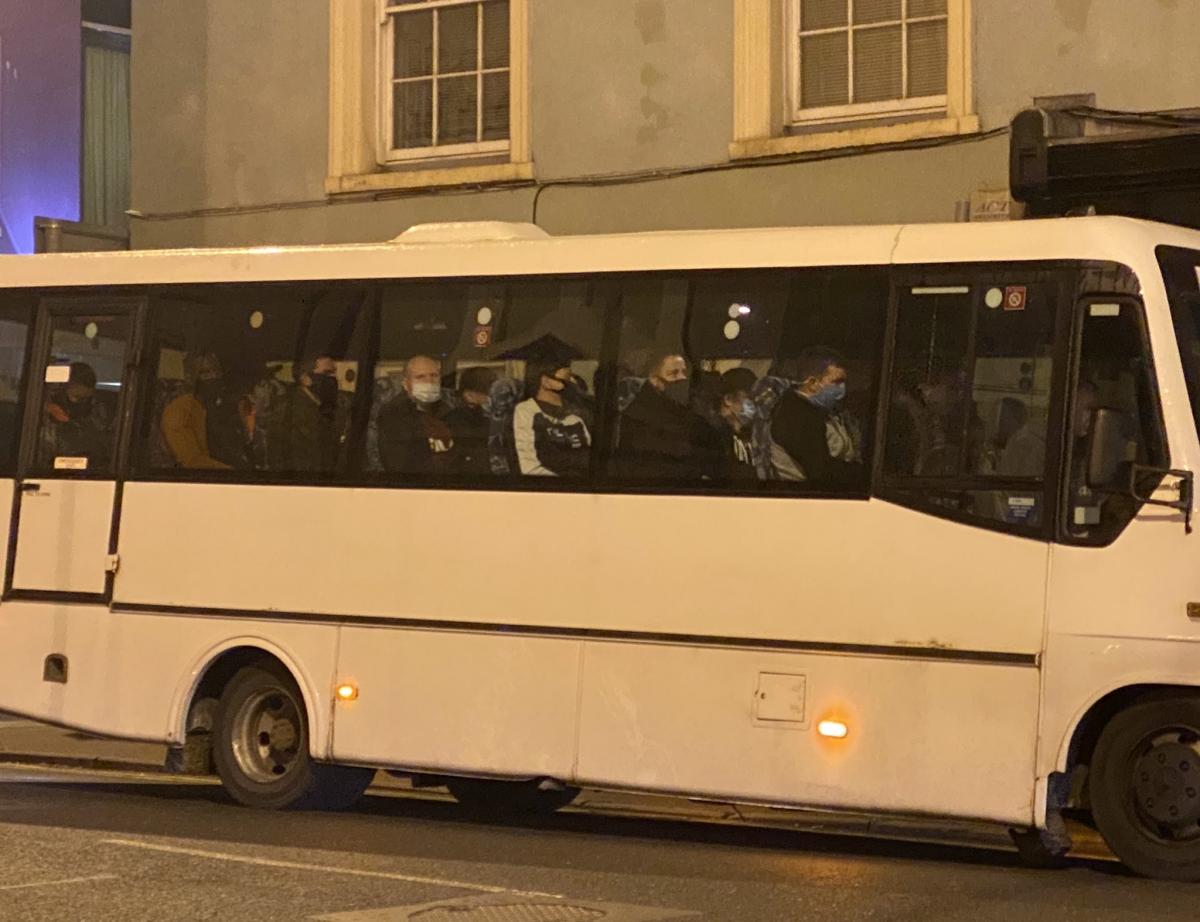 A fresh outbreak of Covid 19 in a meat plant in Waterford this week brings to a total of 44 the number of clusters in meat plants across the State in the past 6 months, or some 1,600 confirmed cases of the virus. One cluster is unfortunate, two might be carelessness, but forty-four is capitalism. The sustained outbreaks of COVID 19 in Ireland’s meat plants reveal how the meat industry and its management really operate on the basis of unchecked power and exploitation. And that’s a problem for us all.
A fresh outbreak of Covid 19 in a meat plant in Waterford this week brings to a total of 44 the number of clusters in meat plants across the State in the past 6 months, or some 1,600 confirmed cases of the virus. One cluster is unfortunate, two might be carelessness, but forty-four is capitalism. The sustained outbreaks of COVID 19 in Ireland’s meat plants reveal how the meat industry and its management really operate on the basis of unchecked power and exploitation. And that’s a problem for us all.
Photo: Standing room only. Meat plant workers on the 6am bus to work in Waterford.
Credit: @Deisesupes
Review of Conor McCabe talk on Money
Conor McCabe delivered a talk entitled ‘Money’ hosted by Comhlámh. Conor is a research fellow, writer and educator. The talk is available to view as a video on Comhlámh’s FB page.
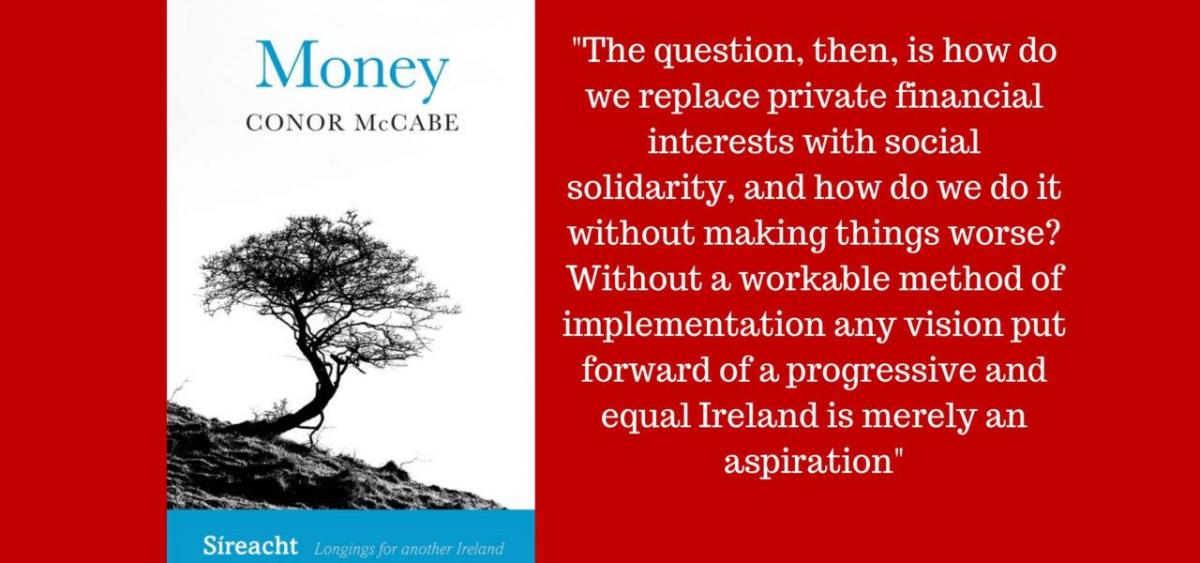
His talk started with a joke, but the joke was just reported as staight news. The OECD produced figures that showed that the Irish worker is currently the most productive worker that has ever existed, globally. The Irish worker in 2017 was adding €87 to the value of the economy for every hour worked. The joke is that this figure is arrived at by crude mathematics which divides the size of the Gross Domestic Product, by the number of hours worked, not taking into account our functioning as a tax haven. That’s the joke, but at a time when the nurses are on strike for fair pay it is hard to find any of this funny.
In defiance of government spin nurses cry Enough is enough
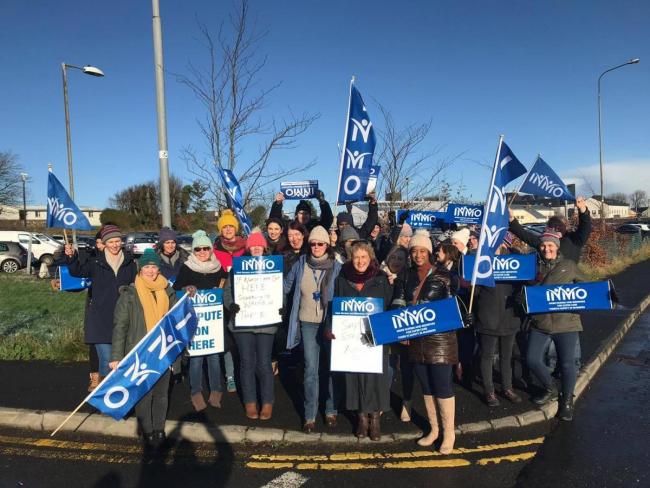 The West’s awake, so too the other provinces, as defiant nurses and midwives take to the picket lines. Buoyed by massive public support, members of the Irish Nurses and Midwives Organisation (INMO) took part in their first strike in 20 years.
The West’s awake, so too the other provinces, as defiant nurses and midwives take to the picket lines. Buoyed by massive public support, members of the Irish Nurses and Midwives Organisation (INMO) took part in their first strike in 20 years.
Generally feeling undervalued and suffering the effects of prolonged understaffing and hospital overcrowding these workers counter-intuitively withdrew their labour in the first of a series of 24-hour work stoppages.
Known for their dedication and immense sense of good will which has for decades covered up the cracks in a health service that itself seems to be in ill-health, this female dominated profession has once again risen up to say “Enough is enough!”
The Next Global Crash? On China and the 21st Century Crisis
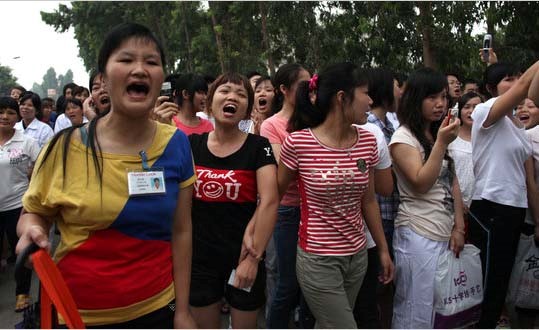 Today, China is the driving engine of global economic growth. A major crisis of the Chinese economy will almost certainly drag the global economy into the next recession in the 2020s. This may turn out to be far more damaging than the Great Recession of 2008.
Today, China is the driving engine of global economic growth. A major crisis of the Chinese economy will almost certainly drag the global economy into the next recession in the 2020s. This may turn out to be far more damaging than the Great Recession of 2008.
Minqi Li is a political economist at the University of Utah and an advocate of China’s Maoist New Left [1]. His most recent book, ‘China and the 21st Century Crisis’, outlines capitalism’s next looming crisis. Regardless of the proximate cause, this coming crisis will be economic, political, and ecological. It will also be global.
Thinking About Anarchism: Competition Versus Co-operation
Consider the accompanying image: phone service providers. 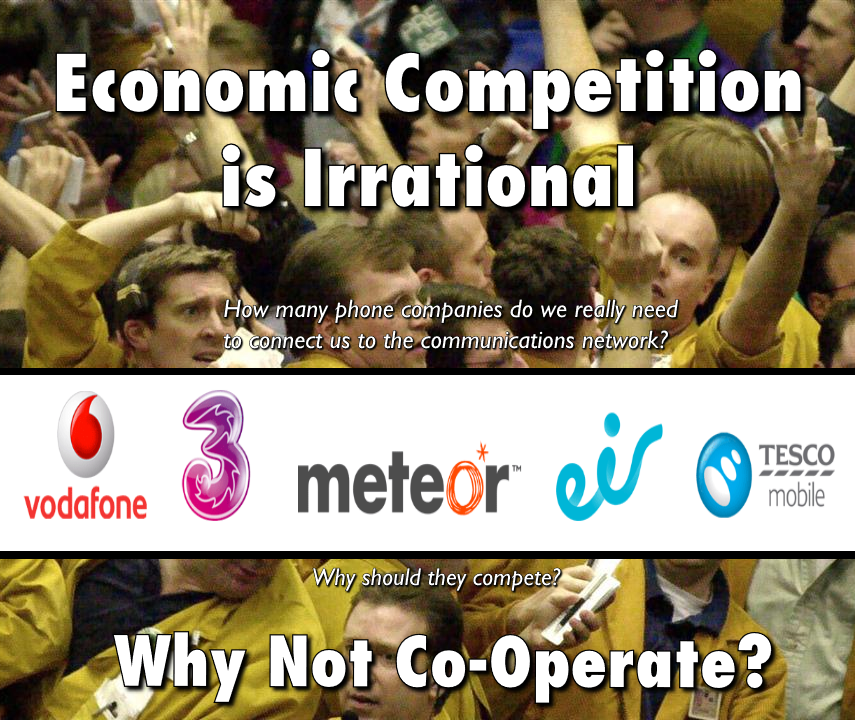 How many of these companies does a rational society really need? Their job is to connect our mobile phones to communications networks (GSM, 3G, 4G, Wi-Fi). Do we really need five such organisations in the 26 counties to attempt that same task? And who does it benefit that these five organisations compete with one another for profit? After all, they are all using the same infrastructure! Surely five organisations co-operating will be more effective than five walled-off organisations each attempting the same task individually.
How many of these companies does a rational society really need? Their job is to connect our mobile phones to communications networks (GSM, 3G, 4G, Wi-Fi). Do we really need five such organisations in the 26 counties to attempt that same task? And who does it benefit that these five organisations compete with one another for profit? After all, they are all using the same infrastructure! Surely five organisations co-operating will be more effective than five walled-off organisations each attempting the same task individually.
But this article is not about phone coverage in particular. It is about those broader questions which run right through the fabric of our societies.
#TakeBackTrinity sees occupations spread across the college leading to abolition of resit fee
14 March saw 40-50 students in Trinity College Dublin occupied the dining hall there to protest the introduction of a 450 euro fee for those who have to sit supplemental exams. Such a fee while trivial to wealthy students would be a major barrier to continuing their eduction to most. Having to work minimum wage jobs to earn it would reduce their chances of passing supplemental exams, further reducing meaningful access to 3rd level education. After college locked them in a solidarity protest gathered on the steps which then occupied two further buildings. The college realising that their attempts to repress the protests had backfired then changed track and tweeted that they agreed with the students and would seriously consider alternatives, a week or so later they announced the fee had been abolished.
Climate Change, Peak Oil, and Globalisation - 3 Interlinked Problems
There are problems which are related but not very often discussed together. These are 1) climate change and pollution, 2) peak oil, and 3) globalisation - very large and complex problems which though not insurmountable require serious consideration.
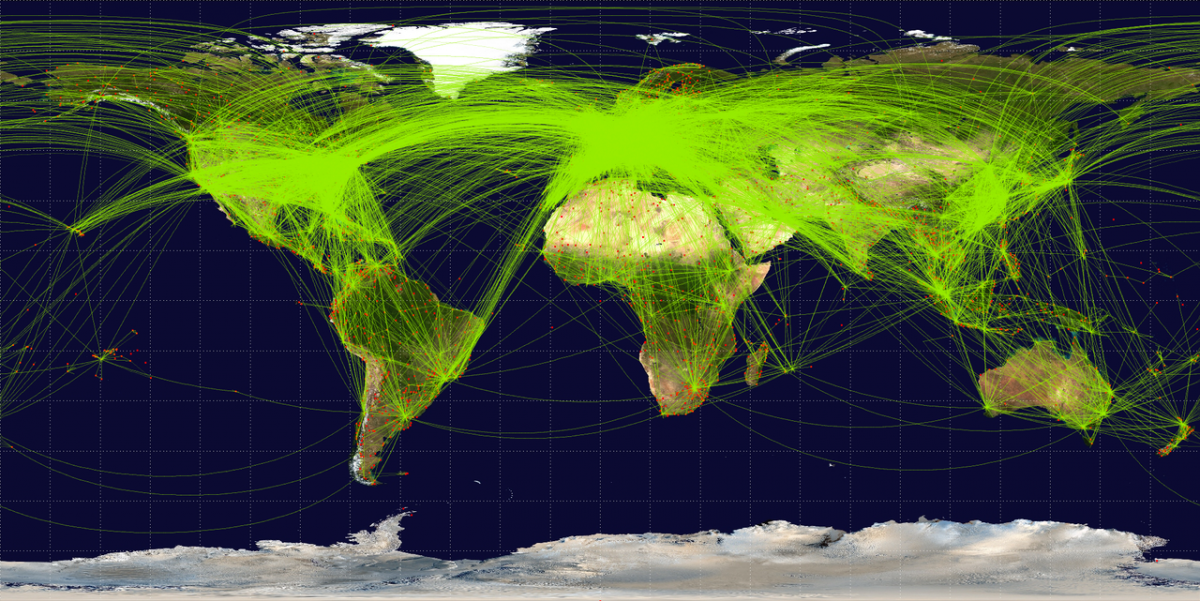
What the author writes here is simplifying reality as the main purpose is to provoke thought in the reader and encourage further research.
Strikes and Solidarity: Interview with a worker at Irish Rail
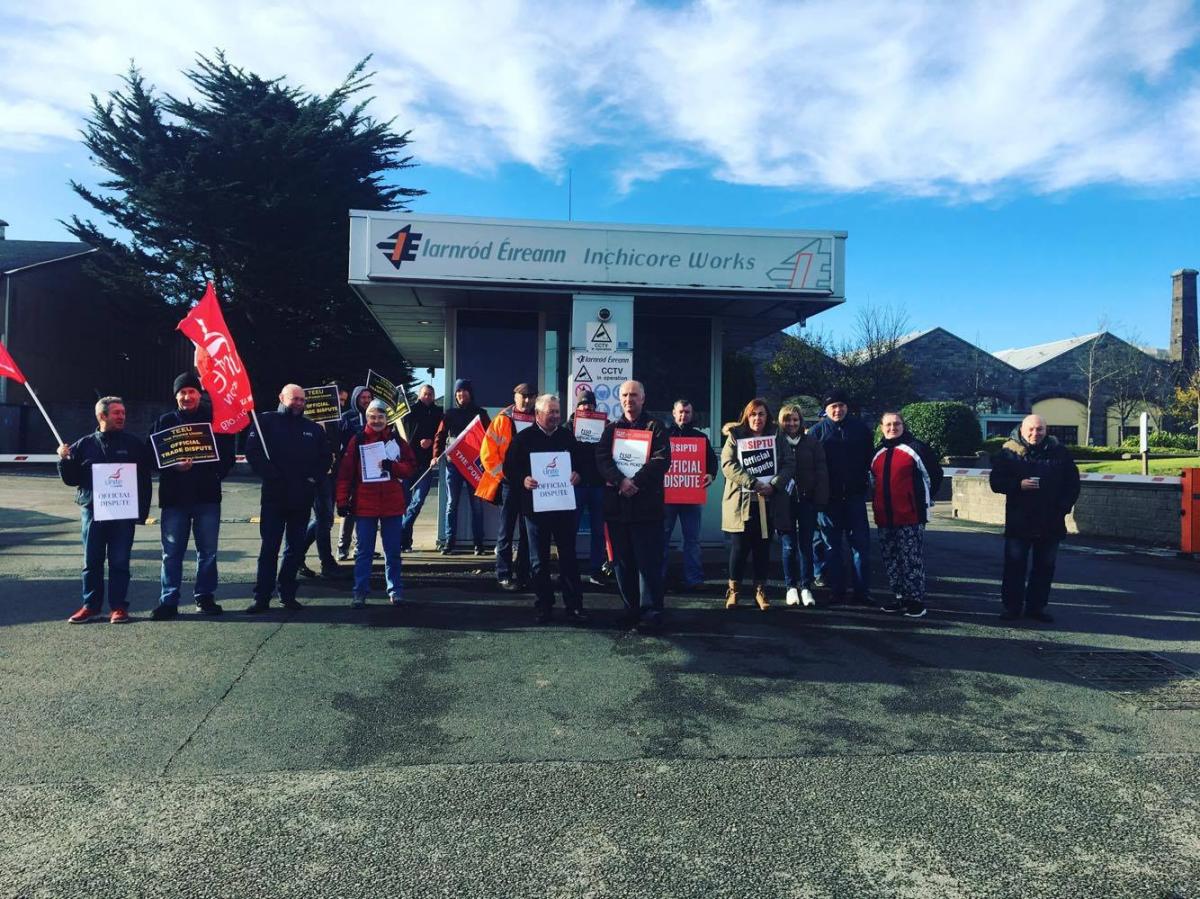 Irish Rail workers were out on strike recently. What’s going on?
Irish Rail workers were out on strike recently. What’s going on?
The WSM recently caught up with J, an activist and worker at Irish Rail, to find out.
For background details, see our analysis, "Why Irish Rail workers are right to strike", published here.
Why Irish Rail workers are right to strike
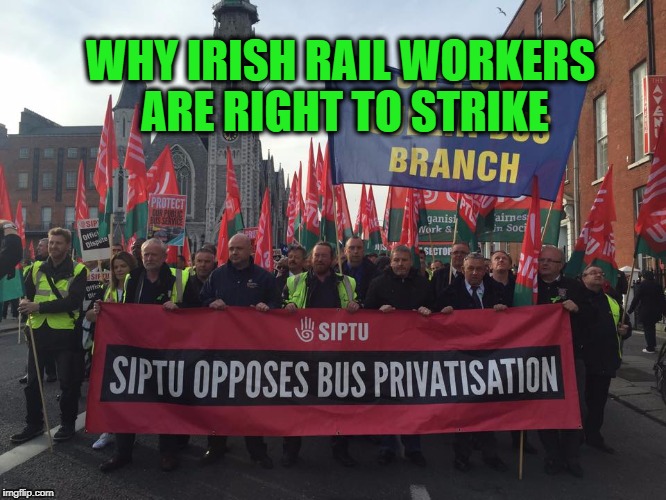 The Workers Solidarity Movement extends its solidarity to all workers at Irish Rail. A series of one-day stoppages and pickets to secure pay rises are planned over the months of November and December. The sought-after pay increases (3.75 per cent annually) are in line with pay increases secured by other transport workers in Dublin Bus, Luas, and Bus Éireann, all of whom secured these victories following collective industrial action and numerous strikes.
The Workers Solidarity Movement extends its solidarity to all workers at Irish Rail. A series of one-day stoppages and pickets to secure pay rises are planned over the months of November and December. The sought-after pay increases (3.75 per cent annually) are in line with pay increases secured by other transport workers in Dublin Bus, Luas, and Bus Éireann, all of whom secured these victories following collective industrial action and numerous strikes.
Democracy - The Art of Re-making Society
 David Graeber’s excellent insider account of the occupation of Wall Street [1] offers us an insight into what form the politics of resistance needs to take. It will be dual purpose, having to both build resistance and also build anew. It will be about renewal, hope and learning. Crucially, how you build resistance will inform and shape what is to follow. It will entail democracy being built from ground zero.
David Graeber’s excellent insider account of the occupation of Wall Street [1] offers us an insight into what form the politics of resistance needs to take. It will be dual purpose, having to both build resistance and also build anew. It will be about renewal, hope and learning. Crucially, how you build resistance will inform and shape what is to follow. It will entail democracy being built from ground zero.
